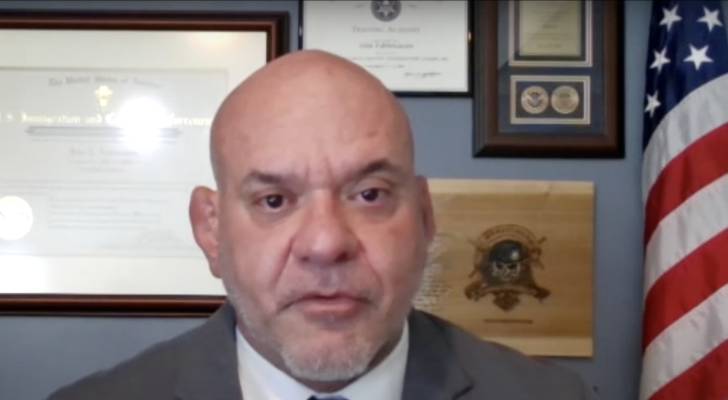The FBI says an Arizona father–son duo scammed $280M — with an elaborate ‘lie’ meant to ‘exploit and defraud investors.’ Here’s how it allegedly happened, and how to avoid frauds like this


Arizona father and son, Randy and Chad Miller, have reportedly been indicted in an alleged scheme that targeted investors looking to fund a sports complex. The elaborate plot, which resulted in more than $280 million in defrauded funds, involved municipal bonds linked to a large sports complex in the city of Mesa. Don’t miss I’m […]
Colorado businesses facing $8 million in fines for employment law violations, including hiring unauthorized migrant workers — but here’s why undocumented workers are paying the highest price


Three Denver-area businesses face a combined $8 million in fines for allegedly employing unauthorized migrant workers in contravention of employment law. U.S. Immigration and Customs Enforcement (ICE) special agent Steve Cagen told Fox31 News that the fines are designed to uphold the law and “promote a culture of compliance." Don’t miss I’m 49 years old […]
‘He stole all the money’: How a West Virginia woman lost $8M, started over with $531K and a plan — here are the steps Ramsey Show experts offered her to help her rebuild


After receiving an $8 million settlement following her husband’s fatal workplace accident in 2008, Mikeal, a 53-year-old widow from Charleston, West Virginia, entrusted the money to a close friend who worked at a bank. Two years ago, she discovered it was gone. Don’t miss I’m 49 years old and have nothing saved for retirement — […]
‘Being beat on with a sledgehammer’: Florida couple speak out after city issues ‘mind-blowing’ $366K fines for code violations they fixed — and they’re not the only ones facing excessive fees


What would you do if your city placed $366,000 in liens on your home after inspectors observed minor violations like broken window frames, cracked outlet covers and peeling paint? If you were Lauderdale Lakes residents Kenneth and Mildred Bordeaux, a Florida couple in their 80s, you’d hire a lawyer and fight back. "I feel like […]
NYC now home to 400K millionaires — the most in the world — and they’re squeezing out the middle class. But for those who choose to leave the Big Apple, relocating comes with unexpected costs


They say if you can make it in New York City, you can make it anywhere. But for a growing number of middle-class families, just making it in the city is becoming nearly impossible. According to a new report from Henley & Partners, NYC boasts nearly 400,000 millionaires, the most of any city in the […]
I’m 39 and saddled with $25K in student loan and credit card debt. The monthly payments are absolutely crushing me — I don’t even have any retirement savings. How do I manage this mess?
When most people are in their 30s, there’s a lot of pressure to be in good financial standing. But what if you’re $25,000 in debt from a mix of student loans and credit card balances, and you only make $4,000 a month? If those monthly payments are stretching you thin, that likely means you haven’t […]
‘They’re taking our homes’: Chaos unfolds in Illinois after local lawmaker arrested during council meeting for raising residents’ concerns — now they’re calling for federal intervention


Tensions flared at a Harvey, Illinois, city council meeting on May 12, as Mayor Christopher Clark ordered the room cleared just 20 minutes into the session. He cited disruptions from residents and supporters of Alderperson Colby Chapman. The confrontation underscored growing resident unrest over several issues they face with the southern Chicago suburb’s administration. Don’t […]
‘You cannot charge more’: Illinois restaurant owner apologizes for ‘bringing shame’ to family after confrontation with customer who didn’t tip caught on video


A video showing a heated exchange between an Evanston, Illinois, restaurant owner and a customer has sparked a broader conversation about tipping culture in America. Kenny Chou, who owns Table to Stix Ramen, admits he lost his temper on April 19 when he confronted the customer outside his restaurant for not leaving a tip. The […]
Houston woman endured ‘severe’ tooth pain for years — said teeth would ‘break in half’ while chewing food. Why millions of Americans share her struggle (and what to do about it)
For more than a decade, Nikita Goffney lived with intense pain every time she tried to eat, all because her teeth were severely damaged. As she shared with KPRC 2 Helps You, her teeth would “break in half, literally, while I’m chewing food.” Don’t miss I’m 49 years old and have nothing saved for retirement […]
This researcher spoke to 100 millionaires in order to uncover their best money-making secrets — and came away with 3 big takeaways. Use them now to make your own 7-figure fortune


Jamie Catmull, host of The Richer Way, has spent years interviewing more than 100 millionaires — from high-powered CEOs and industry leaders to self-made entrepreneurs — to uncover the key to their success. "I wanted to help people take more control of their finances … share how (highly successful people) dealt with setbacks and came […]